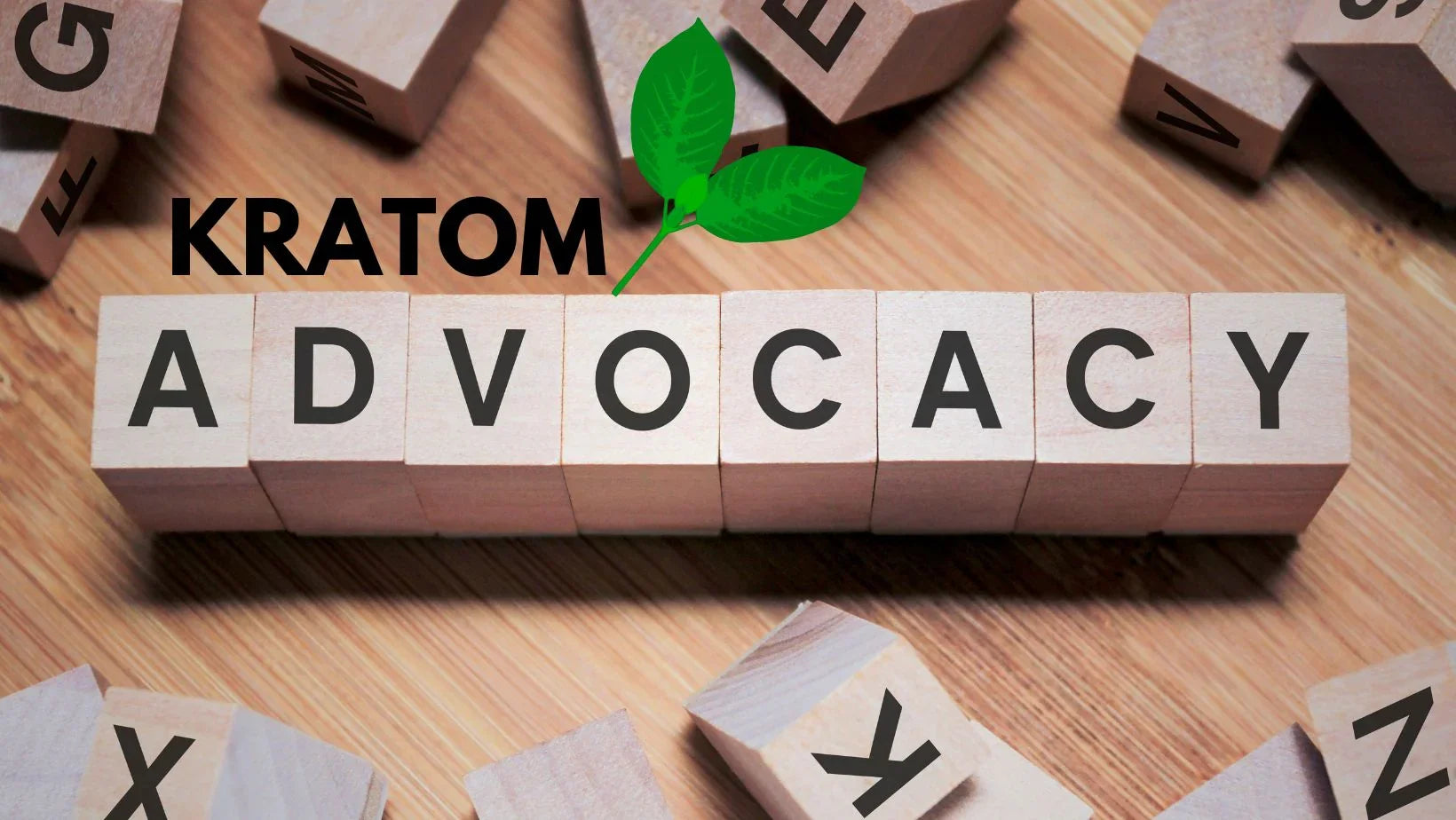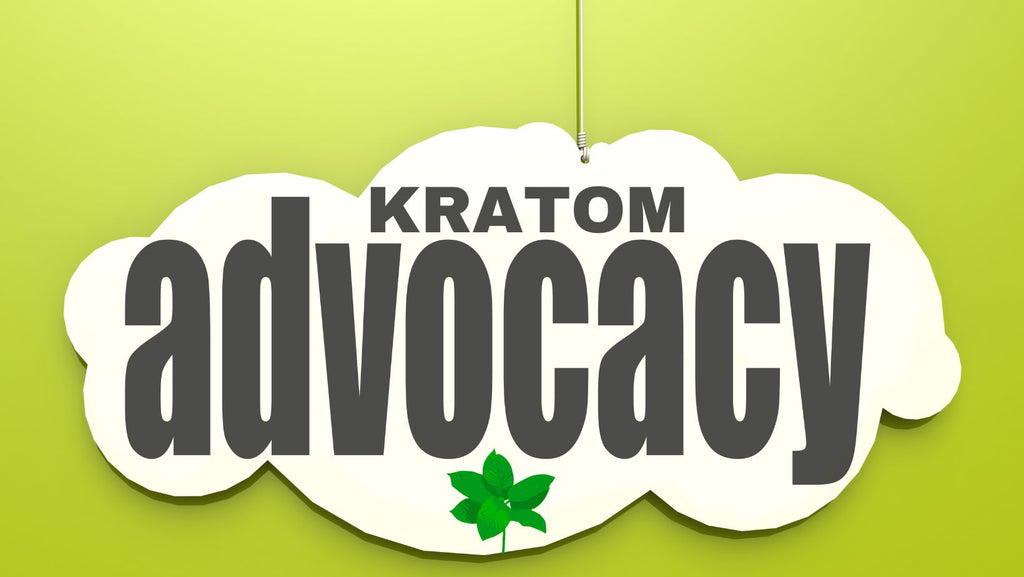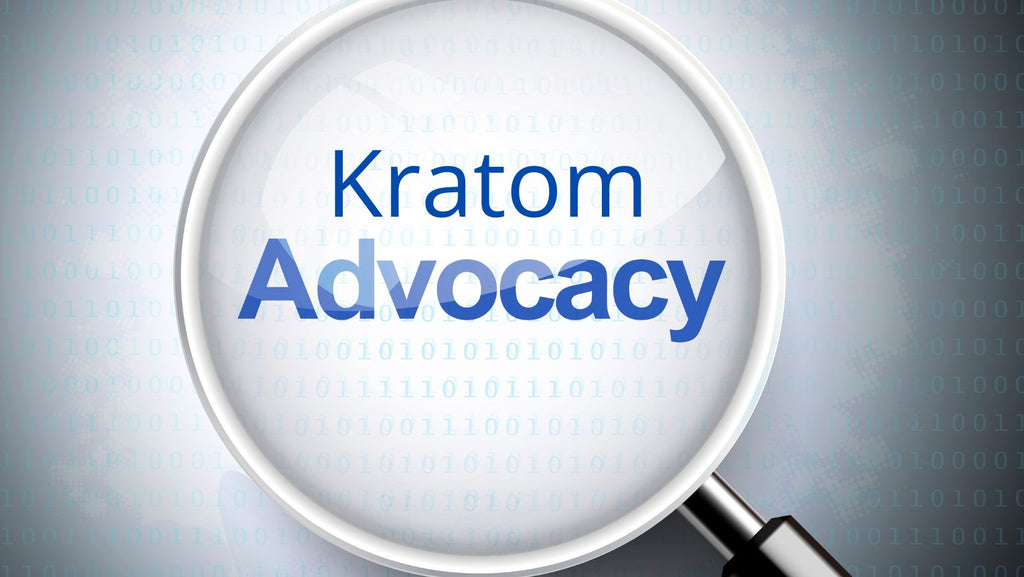
Kratom Advocacy 101: A Better Kratom Regulation Approach
Learn strategies for promoting informed, responsible Kratom advocacy, use and advocating for fair regulations.
Introduction to Kratom Advocacy: Why It Matters
Kratom advocacy is crucial in the fight for balanced and fair regulation of Kratom. Kratom plant has become a significant part of herbal supplements used for pain relief, mental health improvement, and for opioid withdrawal assistance.
Advocates play a vital role in educating legislators, the public, and regulators about the benefits of Kratom, dispelling myths and misconceptions that often lead to overly stringent regulations or outright bans.

Effective advocacy ensures that the voices of countless individuals who rely on Kratom for medicinal purposes are heard, contributing to legislation that supports both public health and consumer safety.
The importance of Kratom advocacy extends beyond just preventing bans. It involves working towards creating a regulatory framework that ensures product quality, purity, and consistency across the board.
By advocating for standards and regulations that safeguard users while allowing access to this important botanical, advocates help to establish a sustainable Kratom industry that benefits consumers, researchers, and healthcare providers alike.
Understanding Kratom Regulations: Current Landscape
Kratom regulations in the United States are complex and fragmented, varying widely from state to state and even at local levels. Federally, Kratom remains legal; however, due to concerns over its safety and potential health risks, several states and municipalities have moved to control or ban the substance.
The lack of uniform federal regulation leads to a patchwork of laws that can confuse consumers and complicate enforcement. As of now, the FDA has not approved Kratom for any medical use, and it often issues warnings about its safety, influencing local and state decisions.
In states where Kratom is legal, there are ongoing debates and legislative efforts aimed at either tightening or loosening restrictions. Proponents argue that regulation should focus on ensuring safety through testing and quality control rather than imposing outright bans.

Opponents often cite concerns about potential abuse and health risks as reasons for restrictive laws. This ongoing debate makes the landscape of Kratom regulation dynamic and ever-evolving, requiring constant attention from advocacy groups.
Comparing Kratom Regulations Across States: A Nationwide Overview
Kratom’s legal status varies significantly across the United States, reflecting a diverse and often contentious regulatory environment.
Here’s a look at how some states are handling Kratom legislation:
- Alabama: Kratom is banned.
- Arkansas: Kratom is classified as a controlled substance.
- California: Kratom is legal, except in San Diego due to a local ordinance.
- Florida: Kratom is legal, except in Sarasota County.
- Indiana: Kratom is banned.
- Tennessee: Kratom was banned but has since been legalized for individuals over 21.
- Wisconsin: Kratom is classified as a Schedule I controlled substance, making it illegal.
This variation illustrates the complex regulatory environment surrounding Kratom and highlights the challenges advocates face in promoting uniform policies.
Kratom Regulations by State: Comparative Table
| State | Legal Status | Notes |
|---|---|---|
| Alabama | Illegal | Completely banned |
| Arkansas | Illegal | Classified as a controlled substance |
| California | Legal (except San Diego) | Banned in San Diego due to local ordinance |
| Florida | Legal (except Sarasota County) | Banned in Sarasota County |
| Indiana | Illegal | Statewide ban on all Kratom products |
| Tennessee | Legal (21+) | Legalized with age restrictions |
| Wisconsin | Illegal | Classified as a Schedule I substance |
The Role of Kratom Advocacy in Shaping Public Policy
Kratom advocacy plays a pivotal role in shaping public policy regarding this natural supplement. Advocates work to inform lawmakers, regulators, and the public about the benefits and potential risks associated with Kratom use, striving to influence policy in a way that recognizes its medicinal value while ensuring consumer safety.
By engaging in public education campaigns, providing testimony at legislative hearings, and fostering community engagement, advocates help bridge the gap between Kratom users and policymakers.

Advocacy efforts also focus on promoting research into Kratom’s effects and potential health benefits. This research is crucial for informing evidence-based policy decisions that can lead to better regulatory outcomes.
Effective advocacy not only prevents restrictive laws that could limit access to Kratom but also encourages the development of standardized regulations that ensure product quality and safety.
This proactive approach helps establish Kratom as a legitimate product in the natural supplement market, influencing public policy towards more informed and balanced perspectives.
Challenges Facing Kratom Regulations and How Advocacy Can Help
Regulating Kratom effectively presents several challenges, primarily due to its complex legal and social standing. Here are some of the primary challenges and how advocacy can play a role in addressing them:
-
Misinformation and Lack of Awareness: Misconceptions about Kratom often paint it as a dangerous drug rather than a therapeutic plant.
- How Advocacy Helps: Advocates educate through seminars and informational campaigns.
-
Inconsistent State Laws: Kratom’s legality varies dramatically between states, leading to confusion.
- How Advocacy Helps: Advocacy groups push for unified laws like the Kratom Consumer Protection Act.
-
Lack of Research: Limited scientific research on Kratom hinders informed policymaking.
- How Advocacy Helps: Advocates fundraise for research and lobby for government-backed studies.
-
Risk of Over-Regulation: Excessive regulations could restrict Kratom access for medicinal use.
- How Advocacy Helps: Engage with regulators to ensure balanced regulations based on evidence.
-
Public Health Concerns: Unregulated Kratom could pose risks due to contamination or misuse.
- How Advocacy Helps: Promote standards for quality, purity, and clear labeling.
-
Potential for Abuse: There is a potential for abuse, which can attract restrictive measures.
- How Advocacy Helps: Implement education on safe usage and community outreach programs.
Key Areas of Focus for Effective Kratom Advocacy
Effective Kratom advocacy requires concentrated efforts in several key areas to ensure that legislative and regulatory frameworks adequately reflect the realities of Kratom use and its benefits.
First and foremost, public education is essential. Dispelling myths and providing accurate, research-backed information about Kratom can help reshape public opinion and influence policy decisions. Advocates need to focus on outreach to both the general public and specific stakeholders such as healthcare providers, law enforcement, and policymakers.

Another critical area is legislative lobbying. Kratom advocates must establish and maintain open lines of communication with legislators to educate them about the potential benefits of Kratom and the consequences of restrictive laws. This involves preparing detailed briefs, arranging meetings, and even providing testimonies at legislative hearings.
Legal support and intervention also play a significant role. This includes challenging unfair laws and regulations in court and supporting legal actions that aim to protect the Kratom community. Legal experts can help interpret laws, advise on compliance, and represent the interests of the Kratom community in judicial proceedings.
Lastly, building a strong, cohesive community among Kratom users and vendors is vital. A unified community can effectively mobilize when needed, providing a strong collective voice that can stand up to regulatory challenges and contribute to shaping a positive regulatory environment for Kratom.
Strategies for Improving Kratom Regulations Through Advocacy
Improving Kratom regulations through advocacy involves a strategic approach to influencing policy and shaping perceptions around Kratom use. One effective strategy is coalition building.
By forming alliances with other organizations and stakeholders, such as natural health product companies, civil liberties groups, and patient advocacy organizations, Kratom advocates can broaden their influence and enhance their credibility.
Engaging in regulatory processes is also crucial. Advocates should take every opportunity to participate in public comment periods, attend public hearings, and engage in committees and working groups that focus on drug policy and natural health products. Active participation ensures that the interests and perspectives of the Kratom community are considered in regulatory decisions.

Advocates should also focus on promoting and supporting research into the effects and potential benefits of Kratom. By collaborating with researchers and funding scientific studies, the advocacy community can help fill the knowledge gaps about Kratom. This evidence can be incredibly powerful in legislative and regulatory discussions, providing a solid foundation for advocating for fair and reasonable regulations.
Using media effectively is another critical strategy. This includes both social media and traditional media outlets to spread information, share personal stories, and counteract negative publicity. Well-planned media campaigns can raise awareness, influence public opinion, and put pressure on policymakers to consider more balanced approaches to Kratom regulation.
Implementing these strategies requires dedication, coordination, and persistence but can significantly impact how Kratom is regulated. Through thoughtful advocacy and strategic engagement, it is possible to foster a regulatory environment that recognizes the benefits of Kratom while ensuring its safe and responsible use.
How to Get Involved in Kratom Advocacy
Getting involved in Kratom advocacy is crucial for those who believe in the benefits of Kratom and want to ensure its continued legality and accessibility.
The first step is to educate yourself thoroughly about Kratom, including its uses, benefits, potential risks, and current legal status. Knowledge is power, and being well-informed enables you to speak confidently and accurately about Kratom.
Next, join Kratom advocacy groups or national organizations such as the American Kratom Association (AKA). These organizations often lead the charge in lobbying efforts, education campaigns, and community mobilization. They also provide resources and tools for individual advocates to use in their local areas.
Participating in community outreach and education efforts can also make a significant impact. This could involve organizing informational sessions, distributing literature, and engaging in discussions on social media platforms. Additionally, contacting and building relationships with local legislators to express your views on Kratom regulation and its impact on the community can be influential.
Future of Kratom Regulations: Predictions and Goals
The future of Kratom regulations is poised at a crossroads, with potential paths influenced heavily by ongoing research, public opinion, and advocacy efforts. As research continues to uncover more about Kratom's pharmacological effects and potential health benefits, it is likely that regulatory bodies will take a more informed approach to its management.
The goal for many in the Kratom community is to shift the narrative from Kratom as a dangerous substance to being recognized as a valuable herbal supplement with significant therapeutic potential.
Predictions for the future include increased state-level regulations modeled after the Kratom Consumer Protection Act, which mandates proper labeling, purity standards, and bans on selling adulterated or synthetic Kratom.
Such regulations could help standardize Kratom products, like kratom powders and kratom capsules, and ensure safety without the blanket bans that some states have implemented.
Conclusion: The Impact of Advocacy on Kratom Regulations
The impact of advocacy on Kratom regulations cannot be overstated. Through concerted efforts by the Kratom community, significant strides have been made in preventing bans, initiating research, and fostering a more nuanced understanding of Kratom among the public and policymakers alike.
Advocacy has also played a critical role in establishing consumer protection laws that safeguard users while allowing them access to Kratom. Continued advocacy is essential to ensure that future regulations are fair and based on scientific evidence, supporting both public health and consumer rights.
FAQs
How can I find a local Kratom advocacy group?
You can find local Kratom advocacy groups by searching online, particularly through social media platforms or websites of national organizations like the American Kratom Association, which often have directories of local chapters.
What should I do if Kratom is banned in my state?
If Kratom is banned in your state, you should comply with local laws to avoid legal repercussions. You can also get involved in advocacy efforts to work towards changing these laws by educating legislators and participating in public discussions.
How can I contribute to Kratom research?
Contributing to Kratom research can be done by donating to research funds, participating in studies if eligible, or advocating for government and private funding for Kratom research.
What are the best ways to stay updated on Kratom laws?
Staying updated on Kratom laws can be achieved by following Kratom advocacy groups, subscribing to newsletters, and monitoring legislative updates in your state.
How can I educate others about Kratom safely?
Educate others about Kratom safely by sharing research-based information, directing them to reputable sources, and discussing both the benefits and the potential risks associated with Kratom use.
Are there annual events or conferences for Kratom advocates?
Yes, there are annual events and conferences for Kratom advocates, often organized by advocacy groups. These events are great opportunities for networking, learning, and participating in workshops aimed at furthering Kratom advocacy.
How do I address misconceptions about Kratom in my community?
Address misconceptions about Kratom by providing accurate, balanced information and sharing personal testimonies where appropriate. Hosting informational sessions and engaging with community leaders can also be effective.
Share

